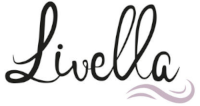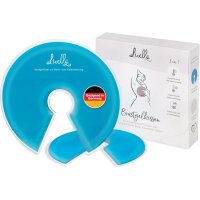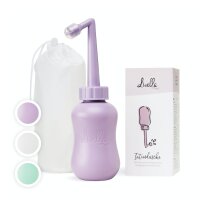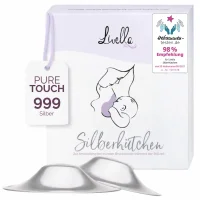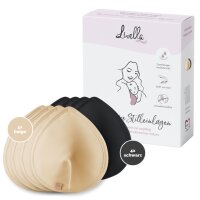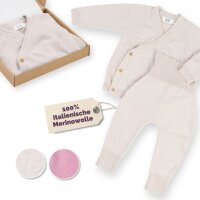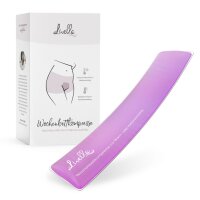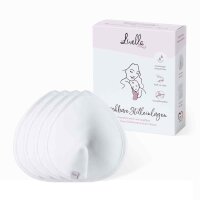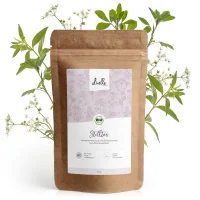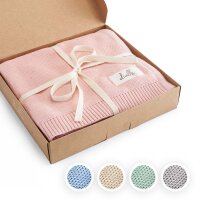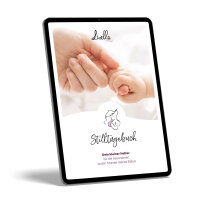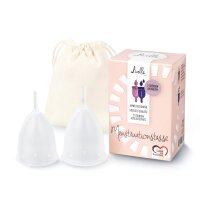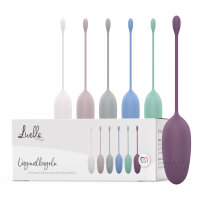Going through pregnancy and breastfeeding is a challenge for the female body that requires a lot of energy. Therefore, it’s important to take good care of yourself during this challenging time. This includes eating a healthy breastfeeding diet, getting plenty of sleep and resting whenever you can.
But no matter how well you look after yourself, there is no guarantee that you won’t fall sick at some point. Under normal circumstances, smaller health issues, such as a cold or the flu, can easily be treated with medication. As a breastfeeding mum, however, taking medicines is not that easy.
What medications are safe to take while breastfeeding? How does medication affect breastfeeding? And what medications should be avoided while breastfeeding? We’ve got the answers for you.
Table of contents
Breastfeeding: safe medication for new mothers
Breastfeeding and medications: what precautions to take
Breastfeeding and medications: natural alternatives
Medicines in breastfeeding: potential risks and side effects
Medicines in breastfeeding: does medication affect milk production?
Breastfeeding and medications: where to get professional support
A final word on breastfeeding and medications
Breastfeeding: safe medication for new mothers
Whether it’s a headache, a sore throat, a fever, a cold, a case of nausea or pain from breastfeeding, there are many complaints that can make life difficult for breastfeeding mums. While others can safely resort to medication in such cases, women who are breastfeeding have to be careful when it comes to taking drugs.
The good news is that there are very few complaints for which there is no medication that is safe to take while breastfeeding. This means that putting breastfeeding on pause, resorting to pumping milk or even weaning is usually not necessary. But what medication can you take while breastfeeding?
Here is an overview of medicines for everyday ailments that are safe for breastfeeding:
- Painkillers: ibuprofen and paracetamol
- Nausea and vomiting: dimenhydrinate
- Diarrhoea: loperamide
- Cough and mucus build-up in the throat: acetylcysteine and ambroxol
- Hay fever and asthma: medicines containing the active ingredient cetirizine
- Bacterial infections: antibiotics like penicillin and cephalosporin
- Bronchial asthma: salbutamol and formoterol
- Allergies: antihistamines like loratadine, cetirizine and clemastine
- Antidepressants: sertraline and citalopram
Despite the fact that these medications are considered to be safe for breastfeeding, you should keep in mind that self-medication generally isn’t a good idea. Better play it safe and talk to your GP, especially when it comes to prescription drugs.
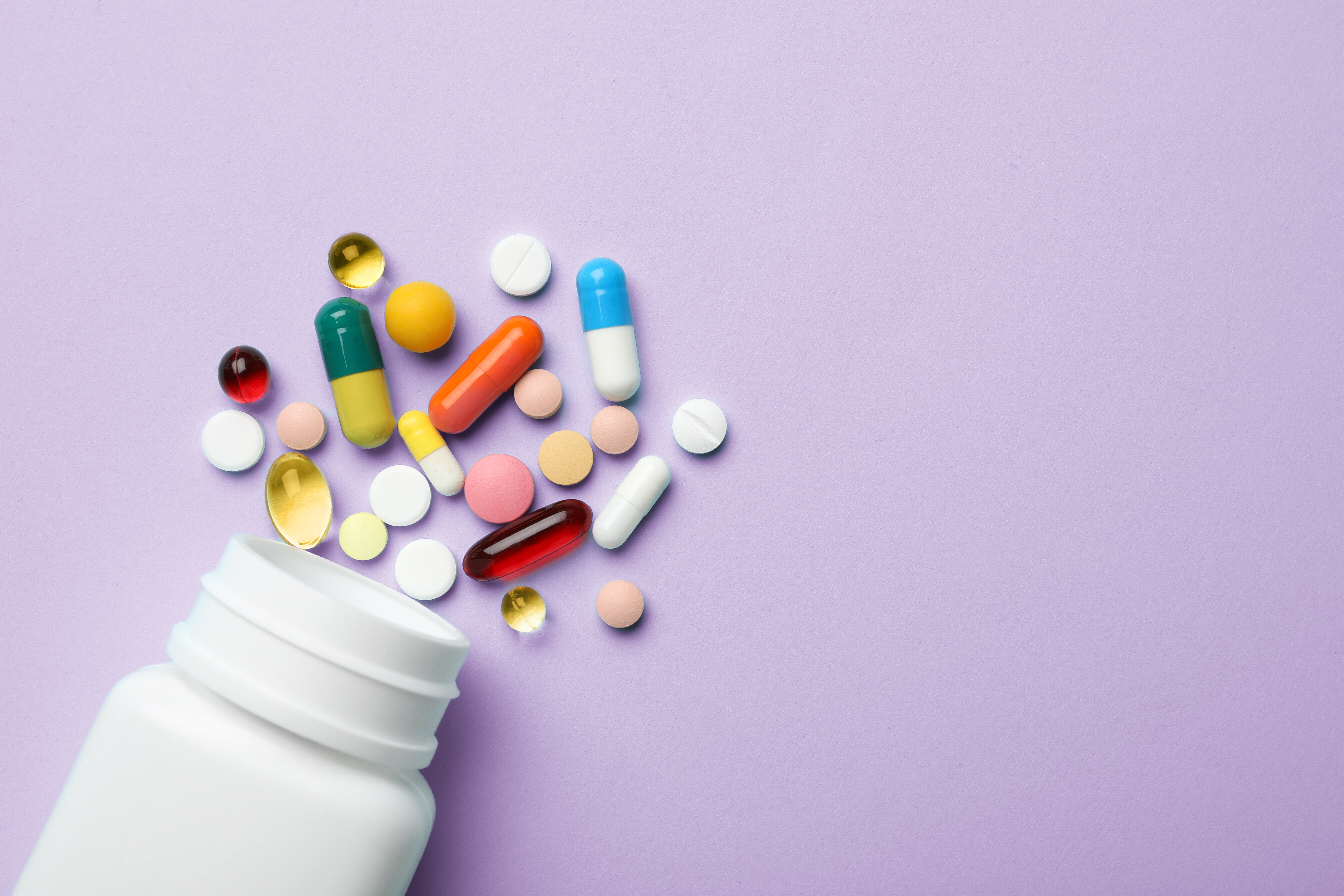
Tip for breastfeeding mums: If you’re unsure about a certain drug, you can check the drugs factsheets on the website of The Breastfeeding Network. Alternatively, you can also check this overview of medicines from A to Z provided by the NHS or the drugs and lactation database LactMed.
Breastfeeding and medications: what precautions to take
New mothers should take certain precautions when taking medicines during breastfeeding. This includes:
- Midwives and GPs should always know that you are breastfeeding. You should also inform them about other medications you’re taking.
- Avoid combining different medications if possible.
- Check if your baby shows any symptoms if you have to take medication for a longer period of time or in frequent intervals.
- Be particularly vigilant if your infant is younger than two months of age. In the first few months of life, babies are typically more sensitive to medicines taken by their mother.
- Prefer medications that have been on the market for a while and whose safety for breastfeeding has been tested for an extended period of time to newly authorised drugs.
- If you have to take medications, keep the treatment period as short as possible.
- Never take prescription medication during breastfeeding without consulting your GP.
- Try to take your medication at times when you know that you won’t be breastfeeding immediately afterwards (for example before bedtime).
- Make sure to take any medication prescribed by your GP until the end of treatment. Stopping treatment early because you think you don’t need the medication anymore is not a good idea.
Breastfeeding and medications: natural alternatives
Although there are a lot of medications that are safe for breastfeeding, you should always try other ways to alleviate your symptoms first. Here are a few ideas on alternative treatment methods that can help:
- Headaches: lie down and rest or take a walk in the fresh air
- Tension in the neck or back: apply a heating pad and/or take a relaxing warm bath
- Sore nipples: use silver nursing cups or cooling breast gel pads for pain relief
- Pain caused by blocked milk ducts or mastitis: use cold and hot therapy, massage your breast, get some rest and relax whenever possible
- Cold: resort to home remedies such as compresses, inhalations, drinking tea and saline solution for decongesting your nose
- Constipation: eat a high-fibre diet, drink plenty of fluids and use swelling agents
You could also consider homoeopathic remedies for everyday complaints during breastfeeding. However, be aware that herbal remedies and essential oils can potentially change the flavour of your breast milk, which could lead to your baby temporarily refusing your breast.

Medicines in breastfeeding: potential risks and side effects
The most frequently asked question when it comes to breastfeeding and medications is whether medicine taken by the mother could get into the breast milk. Since vitamins and trace elements from foods you eat make it into your milk, the idea that traces of medication could too is not so far-fetched.
In fact, traces of almost any medicine pass through your breast milk to your baby. However, the crucial point is in what quantity. In scientific terms, this is referred to as the relative dose. The relative dose describes the ratio between the dose of medicine in the mother's body and the dose passed to the baby.
In general, medications are considered safe during breastfeeding if they have a relative dose of up to 10%. Medications with a relative dose of 10% to 25% should be treated with caution, and medicines with a relative dose of over 25% are unsuitable for breastfeeding.
According to experts, single doses of medication are generally unproblematic. In cases where the medication needs to be taken on more than one occasion, the decision of whether or not it is safe to continue breastfeeding depends on the dose, the period of use and whether or not the medicine is safe for breastfeeding. It’s mainly in cases of high-dose medication, long-term treatment and combined use of different medications that caution must be taken.
Other risk factors to take into consideration when taking medicines while breastfeeding include premature birth and certain health conditions in your child. If done without proper consultation and monitoring, breastfeeding while taking medications can have several long-term effects on your baby.
Medicines in breastfeeding: does medication affect milk production?
It is not uncommon for breastfeeding mums to worry about low milk supply. Therefore, it’s hardly surprising that many of them wonder if taking medication while breastfeeding has a negative impact on milk production.
There are, indeed, some medicines that can decrease your breast milk supply. They include diuretics, oestrogens and dopamine agonists such as bromocriptine, cabergoline, lisuride and methylergometrine.
On the other hand, there are also medications that promote lactation, such as phenothiazines and metoclopramide, which have an antidopaminergic effect.
Breastfeeding and medications: where to get professional support
Unfortunately, there are many GPs who are not sufficiently familiar with the use of medication during breastfeeding and only follow the information provided on the package leaflet or the entries on the red list.
The problem with this approach: The red list and the information on package leaflets give the impression that many medications are not safe for breastfeeding, even though they actually are. So, where can breastfeeding mums get reliable professional advice on breastfeeding and medication?
Baby-friendly pharmacies can advise breastfeeding women on non-prescription drugs. Prescription medication, on the other hand, requires prior consultation with your GP. When talking to your GP, make sure to insist on getting a medication that is safe for breastfeeding. If necessary, mention the database provided by The Breastfeeding Network or the LactMed database.
A final word on breastfeeding and medications
Taking medication while breastfeeding is a sensitive issue for many new mothers because they are afraid that the medicine could get into their breast milk and harm their baby. With a little caution, however, there is no need to worry. Here is a summary of what to keep in mind:
- Always try alternative treatment methods first before resorting to taking medication.
- Contrary to what many mums believe, taking medication rarely requires putting breastfeeding on hold.
- For nearly all complaints there is a medication that is safe for your breastfed baby.
- Even if traces of medication pass into the breast milk, it’s very rare for breastfed babies to show symptoms, and if they do, the symptoms are usually quite mild.
- Cases where you should exercise a little more caution include long-term treatment, high doses and premature or sick babies.
References
- Arzneimittelbehandlung der Schwangeren (aerzteblatt.de)
- Medikamente in der Stillzeit | Apotheken Umschau (apotheken-umschau.de)
- Arzneimittel in der Schwangerschaft und Stillzeit (akdae.de)
- Arzneimittel und Stillen - Still-Lexikon
- full.pdf (meduniwien.ac.at)
- Welche Medikamente kommen in Schwangerschaft und Stillzeit bei welcher Krankheit infrage? | Die Techniker (tk.de)
- Stillen und Medikamente - familienplanung.de
- Embryotox - Arzneimittelsicherheit in Schwangerschaft und Stillzeit: Arzneimittel
- 07 christof schaefer (jtgga.org)
- Antidepressants and Breastfeeding - The Breastfeeding Network
